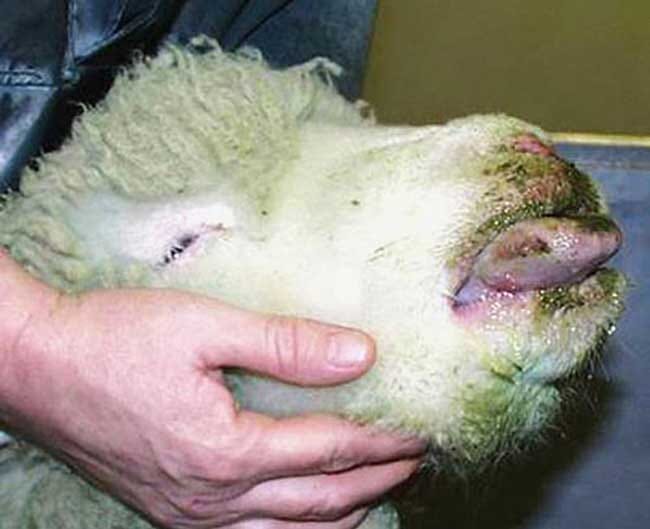

2025-07-18 Gallura Disinfestazioni posted:
Today we're revisiting a topic we've covered several times on our blog: bluetongue.
The issue has recently returned to the spotlight following an outbreak recorded last week in Barbagia, specifically in Onanì.
Bluetongue is a viral disease caused by a virus from the Reoviridae family. It occurs primarily in sheep and goats and can cause symptoms such as swelling of the mouth and tongue, fever, and sometimes more serious complications. The name comes from the characteristic blue-purple color that the tongues of infected animals can take on due to swelling and vascular changes.
The virus is spread primarily through the bites of certain mosquito species, particularly those of the Culicoides genus. The presence of these mosquitoes is more intense during the warmer months, making the summer and autumn periods more risky.
In Sardinia, bluetongue represents a significant challenge for livestock farmers, especially in areas where climatic conditions favor the proliferation of mosquitoes. The region has adopted surveillance and control measures to limit the spread of the disease, including vaccination campaigns and monitoring of Culicoides populations, as well as targeted disinfestation interventions.
To protect animals, it is essential to follow a few simple rules:
o Vaccinate sheep and goats against bluetongue, especially before risk periods.
o Reduce areas of stagnant water where mosquitoes breed.
o Use nets or other protection systems for animals during peak mosquito activity hours.
o Monitor animals closely for early detection of any symptoms.
o Implement periodic mosquito disinfestation interventions to eliminate Culicoides populations as much as possible.
Bluetongue is a disease that, if properly managed, can be effectively controlled. Collaboration between farmers, veterinarians, health authorities, and pest control companies is essential to keep this threat under control and ensure animal welfare in Sardinia.
How much it cost?